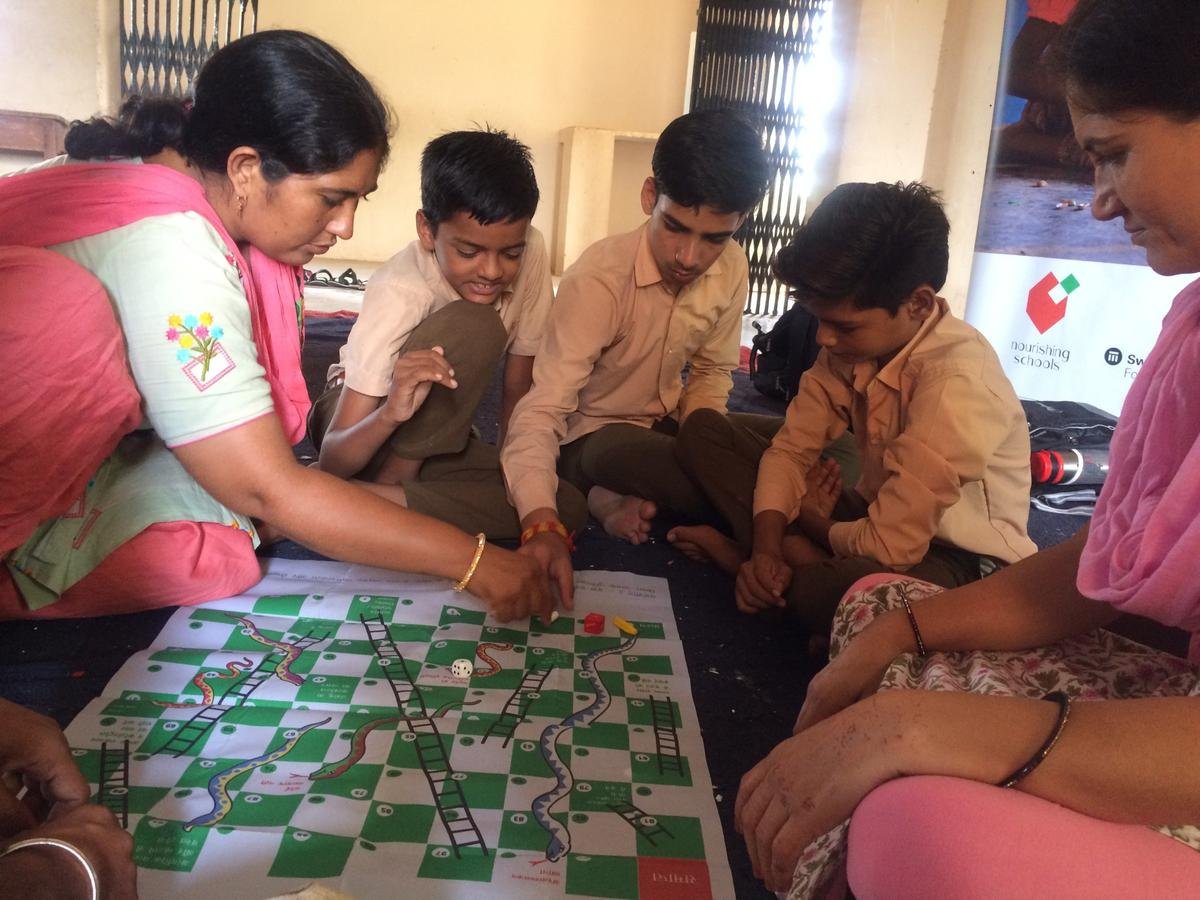An innovative ‘toolkit approach’ adopted by a government school in the Shekhawati region of Rajasthan has strengthened the relationship between children’s nutrition and learning outcomes.
The Nutrition School Foundation launched this project in the 2023-24 school year in response to reports that large numbers of adolescent students are suffering from malnutrition and anemia. The intervention aimed to connect children with activities aimed at improving health, promoting hygiene practices, and strengthening learning abilities.
The foundation’s work in Shikhar and Jhunjhunu in Shekhawati, and three other districts in the state, is improving the health and nutritional status of young students, especially those aged 9 to 14, while demonstrating the effectiveness of community-led solutions. This led to a significant improvement. In addition to addressing specific nutritional needs, games and activities connected students with the science curriculum, reading comprehension, and numeracy.
Archana Sinha, co-founder of the Nutrition School Foundation, said the awareness generated through the toolkits has equipped young students to fight malnutrition in their communities, manage school gardens and adopt hygiene practices. “We have enabled students to solve problems related to nutrition, hygiene and environmental management in their schools and communities,” Sinha said.
According to the foundation, a profile of Poshan district in Sikar province prepared by the International Food Policy Research Institute (IFPRI) shows that 21% of women aged 15 to 49 are underweight and 20% are underweight based on BMI. It was revealed.
The foundation said behavior change interventions through school-going children have high potential in Shikhar district.
“A mid-term study of 20 schools in Shikhar district found that within just one cycle of using the toolkit, the number of students washing their hands with soap increased from 73% to 91%. Additionally, 92 % of children reported an increase in their intake of fruits and vegetables, and 50% of children reported an increase in their intake of local herbs and vegetables,” said Sinha.
In rolling out the toolkit, the Foundation will provide schools with boxes of games and activities so that children can engage in “small activities” such as making their own soap, building a hand-washing station or growing their own nutritional garden. He urged them to encourage people to take on “adventures.” These activities were targeted at school children from classes IV to IX.
“Over two cycles of using the toolkit, children solved school and community problems related to nutrition.Teachers became ‘student ministers’ in the areas of food and nutrition, sanitation and hygiene, as well as agriculture. ,” Sinha said. These “ministers” took turns leading games and activities related to their area with their classmates over the course of eight weeks.
Games and activities are strategically designed to improve students’ reading comprehension, numeracy, and critical thinking skills, while promoting a deeper understanding of nutrition and health concepts. Mr. Sinha said as many as 3,118 children participated in the activity in 20 schools in Shikhar district.
From a baseline survey of 1,573 students in Shikhar district, the Foundation found that 48% were from Other Backward Classes, 31% were from Scheduled Castes, 18% were from General Category and 2% were from Scheduled Tribes. We have detected that you are from According to Niti Aayog’s National Multidimensional Poverty Index-2023, her 9.09% of Shikhar’s population is multidimensionally poor.
Ramavtar Ruhera, principal of Dishanu Public High School in Rahmangarh tehsil of Shikhar, said, hinduism Children at his school were using the toolkit independently without teacher supervision. “This toolkit is typically used by children during seventh or eighth period and on Saturdays, which is ‘no bag day,'” he said.
Mr Ruhera said enrollment at his school increased after the intervention as the program was seen as beneficial for both children and their parents. Sharing the findings also helped parents get a comprehensive scenario of their child’s school challenges.
This is a premium article available to subscribers only.Read over 250 premium articles every month
You have exhausted your free article limit. Please support quality journalism.
You have exhausted your free article limit. Please support quality journalism.
read {{data.cm.views}} from {{data.cm.maxViews}} Free articles.
This is the last free article.

